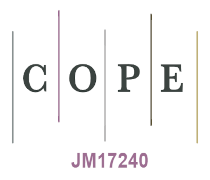Potoczna wiedza o cukrzycy: porównanie osób posiadających i nieposiadających chorego na cukrzycę w rodzinie
DOI:
https://doi.org/10.18778/1427-969X.16.04Słowa kluczowe:
diabetes, illness representations, healthy individualsAbstrakt
The aim of the study was to examine the perception of diabetes and the knowledge about this disease. Participants were divided into two groups: the first one consisted of family members of diabetic patients (56 individuals; M age = 54) whereas the second one comprised those who had no family experiences with diabetes (104 individuals; M age = 55). In order to examine the perception of diabetes modified version of IPQ-R (The Revised Illness Perception Questionnaire), enabling examination of healthy individuals was applied. Additionally, participants were to decide whether certain given information on diabetes was true or false. Participants in both groups considered diabetes as a serious chronic disease which can be successfully treated and the course of which is largely dependent on a patient’s behaviour. In both groups there were false assumptions regarding the causes of the disease and opinions discordant with medical knowledge. It would be advisable to organize educational campaigns and screening programmes for the family members. As a result, family members would be able to provide better support for the patient and could also recognize dysfunctions of their own organism early enough.
Bibliografia
Bishop G.D. (2000), Psychologia zdrowia, Astrum, Wrocław.
Google Scholar
Boyle C.M. (1970), Differences between patients’ and doctors’ interpretations of common medical term, „British Medical Journal”, 2, 286–289.
Google Scholar
DOI: https://doi.org/10.1136/bmj.2.5704.286
Figueiras M. J., Alves N.C. (2007), Lay perception of serious illness: An adapter version of Revised Illness Perception Questionnaire (IPQ-R) for healthy people, „Psychology and Health”, 22(2),143–158.
Google Scholar
DOI: https://doi.org/10.1080/14768320600774462
Hermele S., Oliwio E.L., Namerow P., Mehmed C. (2007), Illness representations and psychological distress in patients undergoing coronary artery bypass graft surgery, „Psychology, Health & Medicine”, 12(5), 580–591.
Google Scholar
DOI: https://doi.org/10.1080/13548500601162705
Heszen-Klemens I. (1979), Poznawcze uwarunkowania zachowania się wobec własnej choroby,Ossolineum, Wrocław.
Google Scholar
Heszen-Niejodek I. (1992), Lekarz i pacjent, Universitas, Kraków.
Google Scholar
Heszen I., Sęk I. (2008), Psychologia zdrowia, PWN, Warszawa.
Google Scholar
Leventhal H., Leventhal E.A., Contrada R.J. (1998), Self-regulation, health and behaviour: A perceptual-cognitive approach, „Psychology and Health”, 13, 717–733.
Google Scholar
DOI: https://doi.org/10.1080/08870449808407425
Luban-Plozza B., Poldinger W., Kroger F., Wasilewski B. (1995), Zaburzenia psychosomatyczne w praktyce lekarskiej, PZWL, Warszawa, 105–107.
Google Scholar
Morrison V., Bennet P. (2006), An Introduction to Health Psychology, Pearson Education Limited,Essex.
Google Scholar
Moss-Morris R., Weinman J., Patrie K.J., Horne R., Cameron L.D., Buick D. (2002), The Revised Illness Perception Questionnaire (IPQ-R), „Psychology and Health”, 17(1), 1–16.
Google Scholar
DOI: https://doi.org/10.1080/08870440290001494
Murray M., McMillan C. (1993), Health beliefs, locus of control, emotional control and women cancer screening behaviour, „British Journal of Clinical Psychology”, 32, 87–100.
Google Scholar
DOI: https://doi.org/10.1111/j.2044-8260.1993.tb01032.x
Ogden J. (2007), Heath Psychology, Open University Press, Berkshire.
Google Scholar
Pimm T.J., Weinman J. (1998), Applying Leventhal’s self regulation model to adaptation and intervention in rheumatoid arthritis, „Clinical Psychology and Psychotherapy”, 5, 62–75.
Google Scholar
DOI: https://doi.org/10.1002/(SICI)1099-0879(199806)5:2<62::AID-CPP155>3.0.CO;2-L
Scollan-Koliopoulos M., O’Connell K.A., Walker E.A. (2006), Assessing legacies of diabetes: recollections of family members’ illness representations and outcomes, „The Journal of Theory Construction and Testing”, 9(2), 40–48.
Google Scholar
Savoca M., Miller C. (2001), Food selection and eating patterns: themes found among people with type 2 diabetes mellitus, „Journal of Nutrition Education”, 33(4), 224–233.
Google Scholar
DOI: https://doi.org/10.1016/S1499-4046(06)60035-3
Scharloo M., Kaptein A., Weinman J., Willems L.N., Rooijmans H.G. (2000), Physical and psychological correlates of functioning in patients with chronic obstructive pulmonary disease, „Journal of Asthma”, 37, 17–29.
Google Scholar
DOI: https://doi.org/10.3109/02770900009055425
Sęk H. (2001), Wprowadzenie do psychologii klinicznej, Wydawnictwo Naukowe „Scholar”, Warszawa.
Google Scholar
Tatoń J., Czech A. (2006), Jak zwyciężyć cukrzycę, PZWL, Warszawa.
Google Scholar
Pobrania
Opublikowane
Jak cytować
Numer
Dział
Licencja

Utwór dostępny jest na licencji Creative Commons Uznanie autorstwa – Użycie niekomercyjne – Bez utworów zależnych 4.0 Międzynarodowe.








